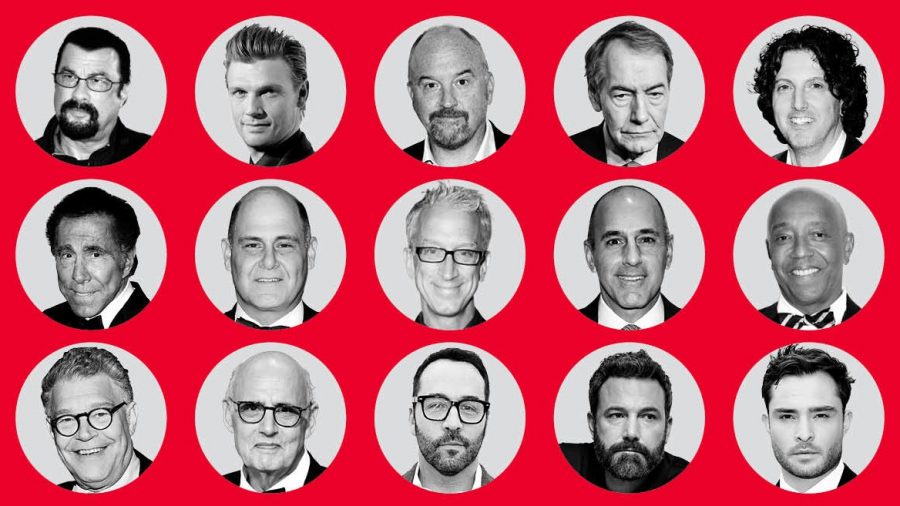Is it Time to End “Cancel-Culture”?
Only a portion of some of the people who have been considered “canceled” (Photo courtesy of Glamour.com)
February 7, 2020
For the past few years, there has been nothing that has caused a bigger stir among celebrity culture than that of “cancel-culture.” The idea of cancel-culture is to bring to light the wrong-doings of celebrity figures, some who may or may not be in a position of power,and shame them for their actions.
It is sound for people who have done misdeeds to be criticized for them, but is cancel-culture the best way we as a people can go about it?
The rise of cancel-culture began in the wake of the MeToo movement, where women, and even men, in the entertainment industry would come out and expose celebrity figures on their interactions with them. But then this exposure further expanded to any celebrity wrong-doing.
There have been numerous celebrities over the past couple of years who have been “canceled”, another term now for boycotted, some of them justifiably, such as Harvey Weinstein, who used his position of power to persuade women to perform sexual favors for him, threatening to blacklist them if they refused. He is a sick individual whose exposure was long overdue. However, there is a list of celebrities who have been canceled and lost their jobs over very little or even nothing at all.
Cancel-culture is a very dangerous trend, especially when it comes to sexual crimes and misconduct. Allegations about these crimes, even false ones, follow the accused around for the rest of their lives and ruins their chances of finding jobs. Since cancel-culture began, there have been numerous people speaking out against celebrities for sexual misconduct, and the victims would get sympathy and be praised for their bravery while the accused got bashed for their misdeeds. While some of the accusations are true, there are other accusations where the stories are either exaggerated or entirely fabricated.
Something like that is incredibly scary, that a story, which may be entirely false, can be immediately seen as fact and will be seen as fact until the accused come out with evidence. An example of an occurrence like this is with Brett Kavanaugh, a justice nominee for the Supreme Court, who was accused of sexual assaulting a woman when he was a young adult.
He was heavily criticized for this, with the scandal being brought to court and Kavanaugh being tried. However, the women’s testimonies were extremely flawed and not credible.
According to an article by the Washington Examiner, Daniel Payne says,“We know, for instance, that nobody — not a single person — has been able to corroborate to any degree that the assault against Christine Blasey Ford happened. Even Ford’s old friend Leland Keyser, who Ford claimed was at the party where the assault allegedly happened, couldn’t confirm it.”
Although Kavanaugh still got the position of a Supreme Court Justice, the point remains that he will be reminded of this for the rest of his life, and there are still people accusing him of such actions.
Cancel-culture brings to light the idea of “guilty until proven innocent,” which is a very dangerous and unconstitutional mindset to live behind. The fact that someone could be considered guilty and dangerous over an accusation alone with no evidence backing it up is terrifying. This is what cancel-culture is all about, which is reason enough to believe that cancel-culture is toxic.
The only way to get rid of cancel-culture in this day is to remember that these are real accusations that need to be proven. Also, we mustn’t simply follow the mobs on Twitter and other social media platforms, but look into it and find sustainable proof.







